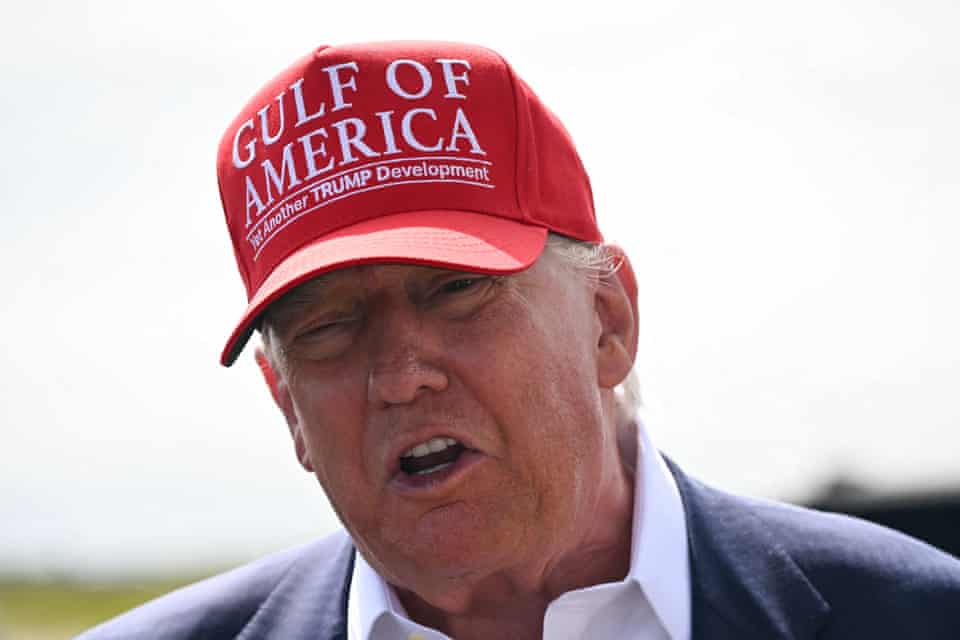Donald Trump has announced plans to impose fresh tariffs on imported pharmaceutical products and semiconductors, marking a significant escalation in his administration’s ongoing global trade war. The new levies could come into effect as early as 1 August, coinciding with the expiry of a temporary pause on so-called “reciprocal” tariffs first unveiled in April.
Speaking to reporters late on Tuesday, the US president said the tariffs on drug imports would be introduced with an initial low rate, before increasing steeply after giving pharmaceutical companies “a year or so to build” manufacturing capacity in the United States.
“We’re going to start off with a low tariff and give the pharmaceutical companies a year or so to build, and then we’re going to make it a very high tariff,” Trump said. He signalled that semiconductors would follow a similar timeline, though he declined to offer further specifics, stating only that the chips were “less complicated” to target.
Earlier this month, Trump told his cabinet he expected to raise pharmaceutical tariffs to as high as 200% after a 12 to 18 month grace period. He also proposed a 50% tariff on imported copper in a bid to bolster domestic production of the metal.
The administration’s legal basis for the new tariffs stems from ongoing investigations launched in April under section 232 of the Trade Expansion Act of 1962, which allows tariffs to be imposed on national security grounds.
If implemented, the pharmaceutical tariffs are expected to impact major drugmakers such as Pfizer, Eli Lilly, and Merck, which operate significant overseas production facilities. Critics warn the move could lead to higher medicine prices for American consumers. Tariffs on semiconductors are likely to affect global chipmakers as well as tech giants such as Apple and Samsung, whose devices rely heavily on imported chips.
The announcement comes just as international trading partners brace for the 1 August deadline, marking the end of a delay in the introduction of broader reciprocal tariffs. That extension had already been pushed back from an earlier date of 9 July.
In a related development, the White House has launched a new investigation into Brazil’s trade practices. According to a statement from US Trade Representative Jamieson Greer, officials will examine Brazilian policies on digital trade, electronic payment services, tariffs, corruption, intellectual property, ethanol, and illegal deforestation. The inquiry comes amid claims that such practices are “unfair” and detrimental to US companies, workers, and tech innovators.
Greer pointed to “Brazil’s attacks on American social media companies” as part of what the administration views as an assault on fair trading conditions.
Despite Brazil running a trade deficit with the US, Trump recently announced a 50% tariff on Brazilian imports, accusing the South American country of conducting a “witch-hunt” against its former president Jair Bolsonaro.
However, there were signs of progress elsewhere. Trump said on Tuesday that a trade deal had been reached with Indonesia, following the country’s agreement to purchase multibillion-dollar quantities of US energy, agricultural goods, and 50 Boeing aircraft. In return, Indonesian exports to the US will now face a reduced tariff rate of 19%, down from the previously threatened 32%.
Meanwhile, the EU remains locked in negotiations with Washington, after Trump threatened a 30% tariff on EU goods, a move the bloc has warned could effectively collapse transatlantic trade. EU trade commissioner Maroš Šefčovič said the bloc would use the time before 1 August to seek a diplomatic solution, noting that daily trade between the EU and US is worth approximately €4.4bn (£3.8bn).
Despite jibes that “Trump always chickens out” in trade disputes, a nickname sarcastically shortened to “Taco” his administration has thus far managed to avoid major retaliation from most trading partners. According to US Treasury data, the country raised $64bn in customs revenue between April and June, a dramatic increase of $47bn compared to the same period the previous year.
Only China and Canada have so far pledged retaliatory tariffs in response to the United States’ increasingly aggressive trade stance.



